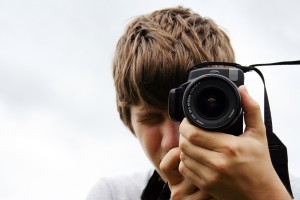 In the midst of exposure, white balance, composition and ISO there is usually something that is not touched on very often: what you can and can’t do when photographing in public. Remember to ask you photography course teacher if they have any specific experiences in this area.
In the midst of exposure, white balance, composition and ISO there is usually something that is not touched on very often: what you can and can’t do when photographing in public. Remember to ask you photography course teacher if they have any specific experiences in this area.
There are quite a lot of different rules and regulations, regarding both your actions and those of others, and they can differ wildly depending on country. However, let’s start with the UK rules for public photography.
People
There is not a clear UK law stating that photographing people in public (without first receiving consent) is a problem. However, according to the European Convention on Human Rights all individuals have the right to privacy in their private and family life.
It can be quite tricky to both interpret and apply this part of the law, as what is considered “private and family life” can be highly subjective. The issue lies in the fact that interpreting whether the place where the picture is taken, is where a person can expect to have reasonable privacy.
If you take a picture of a child walking with their parents, this can be considered family time, and as such can be protected under the convention.
For personal use, this is less of an issue, but if you plan on publishing the photo, always have the subject sign a model release form (written consent that you can use the picture for commercial use).
Buildings / Estates
Taking photos of buildings when you are located in a public space is permitted and does not require consent from owners or custodians. There are some exceptions to this, namely estates owned by the Crown such as factories, docks and mines.
For commercial use, there are some restrictions in places such as Trafalgar Square, Parliament Square and some royal parks. But as long as it’s for personal use, and you are not causing an obstruction, you are allowed to shoot as much as you like.
If you set up a full rig of gear, you may attract attention, however. Security guards or even the police may come to check what you are doing, but know that you have the law on your side, and any hostility from them could be considered assault.
Summary
- Photography courses very often fail to explain the rights you have for public photography. As a general rule of thumb, go with the following:
- If your photos are for commercial use, you need the permission of involved parties via a model release form or permission from estate owner.
- If for personal use, the rules are more slack and you can get away with most things as long as you are polite and courteous.
- If you need to know more about public photography (such as street photography) sign up for a course today!







